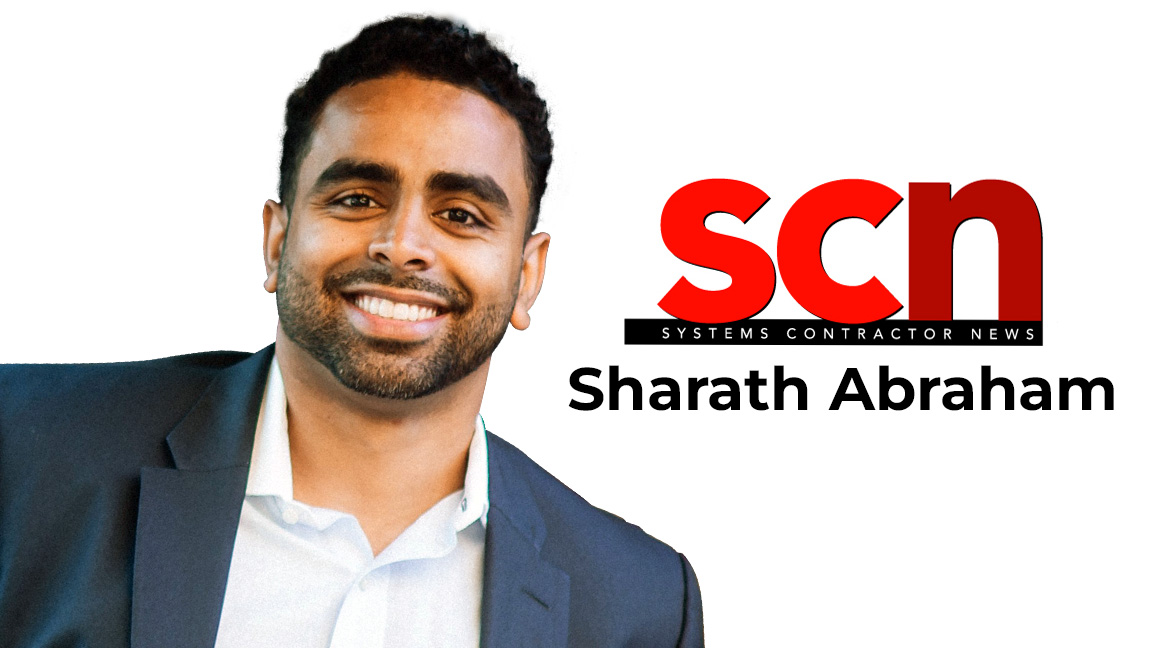Viewpoint: Yes, We're All Freshmen Again
Pro AV needs a back-to-school mindset reset. Here's why.

A daily selection of features, industry news, and analysis for AV/IT professionals. Sign up below.
You are now subscribed
Your newsletter sign-up was successful

Walking into InfoComm 2025 felt oddly familiar—the badge scan, the flood of LED walls, and that unmistakable energy. It brought me back to my first day of freshman year at NJIT in Newark, NJ, standing outside Cypress Hall. You know the feeling of new faces, new rules, and the silent hope that you’re wearing the freshest kicks on campus. That same nervous curiosity was in the air in Orlando, not just from first-time attendees, but also from seasoned pros trying to make sense of AI, hybrid work models, and tech partnerships that didn’t even exist a year ago.
It got me thinking maybe what the AV industry needs most right now isn’t new technology. Perhaps we need a mindset reset, a chance to feel like freshmen again.
As a freshman, I was wide open to the possibilities of what I could accomplish and learn. But that feeling is harder to come by in your career. You find your lane after a few years, and the longer you stay in it, especially in AV, the less you tend to deviate. You become hyper-focused on goals, deliverables, and deadlines.
Then, each year, InfoComm arrives, and suddenly, that wide-eyed energy comes back—not necessarily from the tech itself, but from the people still asking, "What’s next?"
That’s when I realized I’ve been in this industry for more than 10 years. And while that might not seem long compared to some, it's long enough to see how much has changed and how much hasn’t. Tech keeps evolving. But the mindset? Often, it’s still stuck in “this is how we’ve always done it” mode.
Be Curious, Not Certain
It took nearly a decade for AV professionals to truly understand the role of IT in our world, and even longer to figure out how to collaborate with it. I remember when “IT convergence” was just a buzzword. I used to roll my eyes. Now? It’s foundational. AV lives on networks, relies on software, and strives to play nicely with data security (I'll save that for another article).
We can’t afford to take another 10 years to figure out AI. Technologies are moving too fast and adoption cycles are short. Customers are already experimenting, whether we’re ready or not.
A daily selection of the top stories for AV integrators, resellers and consultants. Sign up below.
That’s why curiosity matters more than certainty. The professionals who’ll thrive next aren’t the ones clinging to what they know. They’re the ones asking, testing, exploring. They’re demoing tools that feel just outside their comfort zones. They’re willing to say, “I’m still learning.”
And here’s the shift no one wants to say out loud: Niche knowledge alone won’t cut it anymore. It’s no longer enough to just be an audio engineer, control programmer, or video wall expert. We need to find the middle ground, being experts in our craft while building enough generalist knowledge to collaborate, adapt, and lead in new spaces.
Sit in the Front Row
In college, I sat in the front row for most classes. I focused better, listened more, and walked out actually understanding the material. That same mindset works in AV.
Here’s the shift no one wants to say out loud: Niche knowledge alone won’t cut it anymore.
As we head into Q4, most people tend to wind down. However, this is the best time to build momentum and adopt a strategic approach. Start reviewing what worked this year, identify skill or tech gaps, and set learning goals tied to your 2025 initiatives. Don’t wait until January to explore AI tools, automation platforms, or new hardware and software updates. Use Q4 to learn, test, and align those insights with what you want to accomplish for yourself and what you can help others achieve.
This isn’t about being the most intelligent person in the room. It’s about being the most engaged. The ones who treat September like a soft launch for Q1? They’re already ahead of the curve.
Find Your Study Group
When I started in technical support at Crestron, I knew the products but not much else. Moving into sales gave me a new perspective. Then, working for an integrator opened my eyes to operations, including logistics, timelines, and client dynamics, among other aspects. What I didn’t realize at the time was that I was unintentionally building a study group, mentors, peers, and coworkers I could lean on when I didn’t know something.
Looking back, that network was one of the most valuable parts of my growth. And it wasn’t built through a formal program. It happened through curiosity, relationship building, and being willing to admit when I needed help. Want to fast-track your learning? Don’t do it alone.
• Connect outside your function. Shadow someone in ops, design, marketing, or service. Ask for 15 minutes to understand how their world works.
• Start recurring check-ins with someone more knowledgeable than you. Make it biweekly, informal, maybe even 10 minutes long. You ask questions. They talk. You absorb.
• Document what you’re learning. Create a shared folder, group chat, or digital notebook to log useful links, insights, and lessons.
• Make learning a habit, not an event. Every meeting, client call, or demo is a live case study. Treat it like one.
You don’t need to be an expert in everything. But when you surround yourself with people who know what you don’t, and you learn from them, you stop guessing and start growing.
Don’t Be Afraid to Look Lost
If there’s one thing that’s helped me grow in this industry, it’s this: I’ve never been afraid to look lost. I’ve never minded asking what some might call a dumb question. I’ve raised my hand in rooms full of experts and said, “Hold up, can you explain that again?”
In any tech-heavy space, there’s pressure to act like you know everything. But that’s just ego. The most confident people I’ve met are those who admit when they don’t know something and then figure it out.
Here’s the truth: No one has it all figured out. The ones who thrive aren’t faking expertise. They’re embracing discomfort. They’re saying, “I don’t get this … yet,” and then put in the work.
If this past year has made anything clear, it’s this: We’re all freshmen again. No matter how long you’ve been in AV, or how much you think you know, AI, automation, and next gen collaboration tools are reshaping the landscape. Fast.
But that’s not something to fear. It’s something to lean into.
[Viewpoint: If You Build It, Will They Come?]
Being a freshman isn’t about being clueless. It’s about being open to learning, changing, and asking better questions. The technologies we’re seeing aren’t just buzzwords. They’re invitations to rethink how we work, design, communicate, and grow.
This is our chance to move forward and faster. But only if we show up with curiosity, humility, and the courage to raise our hand and say, “Teach me.”
Sharath Abraham, CTS, is an experienced technical professional with a demonstrated history of working with products that are designed and built to work together as a complete system for the best end user experience. He is a global strategy manager at Jabra. Contact him at sabraham@jabra.com. Abraham was featured in the 2020 class of SCN: The Nine and holds a master’s degree in computer information systems.

